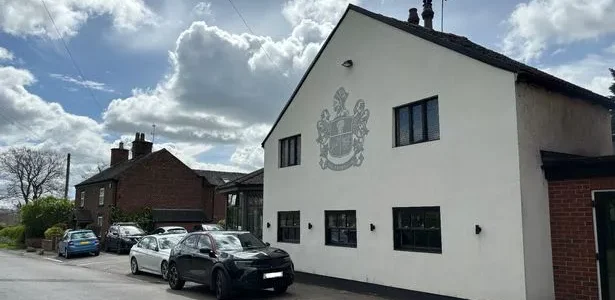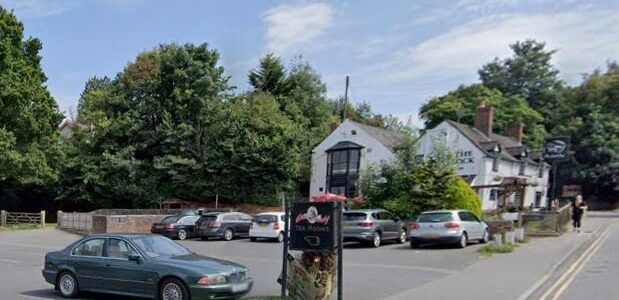Pub Property Valuation: A Commercial Guide
Pub property valuation is a critical process in the commercial real estate sector, especially for those considering buying, selling, or leasing such establishments.
Whether you’re a seasoned investor or new to the industry, understanding the nuances of pub valuation can significantly influence your decisions and outcomes.
This guide breaks down the essential aspects of pub property valuation to help you navigate this dynamic market with confidence.
Understanding the Basics of Pub Valuation
Valuing a pub is distinct from appraising other commercial properties due to its operational nature and reliance on trade performance.
Unlike standard retail or office spaces, pub properties are valued based on a combination of real estate metrics and business viability. The dual nature of these assets – property and enterprise – makes their valuation complex yet rewarding.
Two primary valuation approaches dominate the industry: the profits method and the market comparison method.
The profits method assesses the income-generating potential of the pub, while the market comparison method benchmarks against recent sales of similar properties. Often, a hybrid approach is used to ensure an accurate valuation.

Factors Influencing Pub Valuation
Several key factors contribute to the value of a pub property:
Location: The geographic setting of a pub has a direct impact on its value. Pubs in high-footfall areas, such as city centers or tourist hotspots, tend to command higher prices. Accessibility, visibility, and local demographics also play vital roles.
Size and Layout: The physical characteristics of the property, including the size of the bar area, kitchen facilities, and outdoor seating spaces, affect its appeal and operational capacity. Larger pubs or those with flexible layouts offer greater potential for events and dining, which can boost turnover.
Trade Performance: The pub’s financial performance, including turnover, gross profit, and net profit, is pivotal. Buyers and investors will scrutinize historic accounts to gauge profitability and forecast future earnings.
Condition and Maintenance: Well-maintained pubs are inherently more valuable. The condition of key features such as the roof, plumbing, and electrical systems can influence valuation, as can the quality of interior décor.
Licensing and Permissions: The pub’s licensing arrangements, including alcohol sales hours and live music permissions, impact its business potential. Favorable licensing conditions often enhance value.
Competition and Market Trends: The level of competition in the area and prevailing market trends can also affect valuation. For instance, rising demand for gastropubs or craft beer venues could enhance a property’s marketability.

The Profits Method Explained
The profits method is particularly important for valuing pubs as going concerns. It involves analyzing the pub’s trading accounts over several years to calculate its maintainable earnings. From this, a fair maintainable operating profit (FMOP) is determined, which reflects the likely profit an average operator could achieve.
This figure is then multiplied by a capitalization rate or ‘multiplier’, which varies depending on market conditions, business risk, and property-specific factors. Higher multipliers are typically associated with pubs in prime locations or those demonstrating consistent profitability.
The Role of Comparable Market Analysis
The market comparison method involves examining recent transactions of similar pubs to establish a benchmark. Key considerations include location, size, trade performance, and property condition. While useful, this approach is often supplementary to the profits method due to the unique nature of each pub business.
For example, two pubs in the same town might differ vastly in value due to variations in customer base, trade style, or lease terms. Detailed knowledge of local market conditions is essential for accurate comparison.
Leasehold vs Freehold Valuation
Pub properties can be either freehold or leasehold, and the valuation approach differs accordingly. Freehold pubs are valued as a combination of property and business assets. Leasehold pubs, on the other hand, are typically valued based on the lease terms, including rent obligations and remaining lease length.
Leasehold pubs may also include an element of goodwill, reflecting the value of an established business. However, the level of goodwill depends on trade performance and brand reputation.
Challenges in Pub Valuation
Valuing pubs comes with challenges, including fluctuating market conditions and shifting consumer preferences. The hospitality sector is highly sensitive to economic changes, with factors such as inflation, disposable income levels, and regulatory shifts affecting trade performance. Furthermore, the rise of alternative leisure options, such as at-home entertainment, has impacted traditional pub footfall in some areas.
Another consideration is the impact of the COVID-19 pandemic. While many pubs have rebounded strongly, others continue to face financial challenges. Evaluating the long-term viability of a pub post-pandemic requires careful analysis of trading resilience and adaptability.
Engaging Professional Valuers
Given the complexities of pub valuation, enlisting a qualified surveyor or valuer with expertise in the licensed trade sector is highly recommended. Professional valuers can provide an objective assessment, backed by industry insights and up-to-date market data. They also ensure compliance with standards set by professional bodies like RICS (Royal Institution of Chartered Surveyors).
Maximizing Your Pub’s Value
If you’re looking to sell or lease a pub, there are several ways to enhance its value. Improving trade performance through targeted marketing, optimizing the menu, or hosting events can boost turnover. Addressing maintenance issues and investing in quality décor also makes the property more appealing to potential buyers.
Understanding your target market is crucial. Whether your pub caters to families, young professionals, or tourists, aligning your offering with customer preferences can drive growth and increase valuation.
Conclusion
Pub property valuation requires a blend of market knowledge, financial analysis, and an understanding of operational dynamics. By considering factors like location, trade performance, and property condition, alongside professional guidance, investors and operators can unlock the full potential of these unique commercial assets. Whether you’re entering the market or expanding your portfolio, mastering the intricacies of pub valuation is a valuable step towards achieving your goals.




